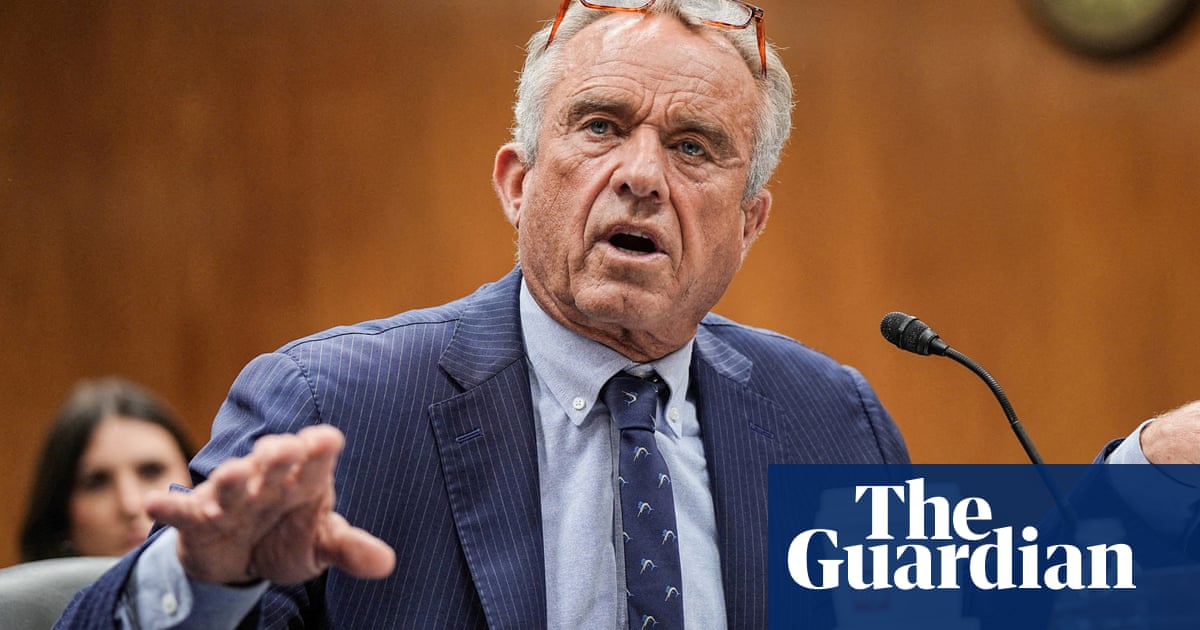The article presents significant developments regarding the U.S. Centers for Disease Control and Prevention (CDC) and its advisory committee on vaccines. Robert F. Kennedy Jr.'s decision to remove all current members of this panel raises numerous questions and implications about public health policy and governance.
Potential Motivations Behind the Announcement
Kennedy's move to reconstitute the CDC advisory committee might be perceived as an attempt to reshape the narrative around vaccine safety and efficacy. By appointing new members, he may seek to align the committee's recommendations with his perspectives on vaccines, potentially reflecting a more skeptical stance toward conventional vaccination practices. This action could be aimed at garnering support from vaccine-hesitant groups and those critical of the CDC's current policies.
Public Perception and Implications
The announcement could foster distrust toward established health institutions like the CDC, especially among communities already skeptical of vaccines. By framing the removal of committee members as a necessary action to bring about change, the narrative may appeal to those who feel marginalized by mainstream health policies, potentially creating a divide in public opinion regarding immunization practices.
Concealment of Other Issues
This development could serve to divert attention from other pressing issues within the healthcare system, such as ongoing debates about healthcare access, affordability, and the management of public health crises. By focusing on the restructuring of the CDC advisory panel, there may be an attempt to overshadow discussions around these broader systemic challenges.
Manipulative Elements of the News
The language used in the article suggests a strategic framing of Kennedy's actions as a bold and necessary reform, possibly indicating a manipulative angle. By emphasizing the urgency of replacing committee members to facilitate new appointments, the article may be steering public sentiment toward viewing Kennedy as a reformist figure rather than a controversial politician.
Credibility of the Information
While the article references a significant action taken by a prominent health official, the context and implications surrounding this decision warrant scrutiny. The motivations behind Kennedy's actions, as well as potential biases in the narrative, suggest that readers should approach the information critically. The credibility may be compromised if the article does not provide balanced viewpoints or comprehensive analysis of potential consequences.
Connections to Other News
This announcement may connect with broader narratives regarding the politicization of public health, particularly in the context of vaccine discourse in the U.S. The ongoing debates surrounding COVID-19 vaccines and public health mandates have already polarized opinions, and Kennedy's actions could further exacerbate these divisions.
Impact on Society and Economy
Kennedy's restructuring of the CDC panel could have significant implications for public trust in vaccination programs, potentially leading to decreased vaccination rates and, consequently, public health risks. This shift may also affect the pharmaceutical industry, particularly companies that rely on vaccine production and distribution, as hesitancy could impact their stock performance and market stability.
Target Audience and Support Base
Kennedy's actions may resonate more strongly with communities that are skeptical of government institutions and mainstream medical advice. These groups may include libertarians, anti-vaccine advocates, and those who prioritize personal freedom over collective health mandates, thus reinforcing existing divides in public opinion.
Market Reactions
This news could influence stock prices of pharmaceutical companies and healthcare firms associated with vaccine production. If public sentiment shifts toward skepticism, it may lead to fluctuations in the market, particularly for companies heavily invested in vaccine development and distribution.
Global Power Dynamics and Relevance
While this news primarily focuses on U.S. health policy, it reflects broader issues of trust in science and governance that resonate globally. The implications of Kennedy's actions may extend beyond national borders, influencing international perceptions of vaccine efficacy and public health strategies.
Artificial Intelligence Considerations
It is possible that AI tools were used in the analysis and drafting of this news piece, particularly in terms of language processing and sentiment analysis. However, the specifics of AI involvement are not explicitly outlined in the article. If AI influenced the tone or content, it could have been designed to amplify certain narratives or emotions surrounding the topic.
In summary, the announcement regarding the removal of CDC panel members is layered with potential motives and implications that merit careful consideration. The framing of this news could either contribute to necessary public discourse or manipulate perceptions surrounding vaccine policy.
